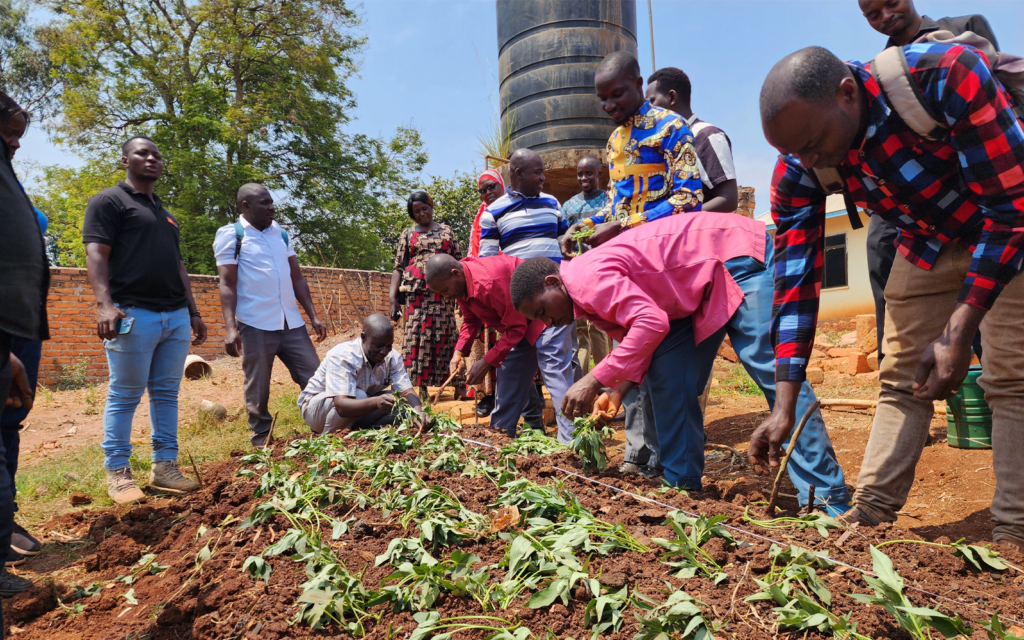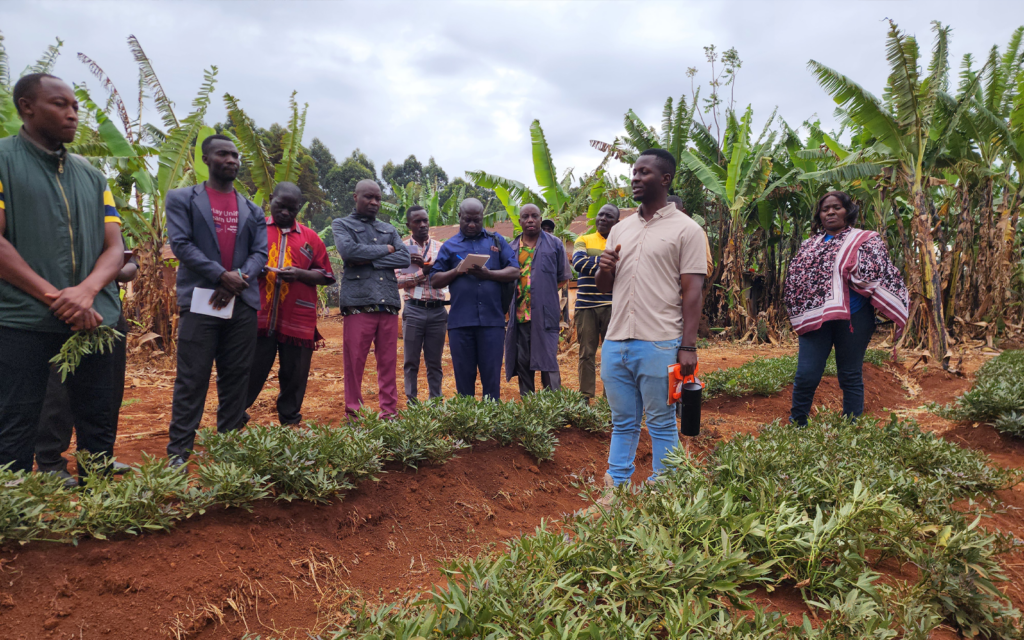
As climate change accelerates food insecurity and malnutrition across Africa, its impact is no longer confined to the walls of community households, it is increasingly being felt in schools. In Sub-Saharan Africa, Tanzania faces one of the highest rates of micronutrient deficiencies, with 34% of children under five suffering from chronic malnutrition. In addition to this, viral diseases are widespread, and farmers are at risk of losing over 65% of their yields when using seeds from unverified sources.
The state of school feeding report by the World Food Programme (WFP) emphasizes the importance of school feeding programs as critical safety net for vulnerable children and households, yet the coverage of feeding programs in low-income countries remains low at 18%, compared to 60% in high-income countries, highlighting the urgent need for innovative and sustainable nutrition solutions, particularly for school going children.
In Tanzania’s Kigoma region, the Consultative Group on International Agricultural Research (CGIAR) Program known as the Seed Equal Initiative (SEI) has been working with WFP to implement an innovative solution to this challenge through the Kilimo Tija Kigoma (KITIKI) school feeding program implemented by World Vision Tanzania and funded by the World Food Programme (WFP). The program promotes the growth of nutrient-rich crops such as Orange-Fleshed Sweetpotato (OFSP), Pro-Vitamin A maize, and iron-rich beans in school gardens. These crops are being promoted by CGIAR centers (CIP and CIAT) who are involved in implementing the SEI.
According to Ms. Acquiline Wamba, Kilimo Tija Kigoma (KITIKI) school feeding program project manager, the inclusion of Orange-Fleshed Sweetpotato (OFSP) across 0.5 Ha school gardens seeks to improve nutritional security among students and the wider community.
Biofortified orange-fleshed Sweetpotato developed by CGIAR researchers at the International Potato Center (CIP), has proven to be a highly effective tool for tackling vitamin A deficiency in children and women of reproductive age. CIP’s collaborative efforts in facilitating Training of Trainers (ToT) session has equipped teachers and education officers in Kasulu and Kibondo districts with knowledge on OFSP Seed and root production to boost nutritional security among students and the wider community.
To ensure widespread availability of quality planting materials, CIP through the SEI has promoted Rapid Multiplication Techniques (RMT) for sweetpotato. This technique accelerates vine production, allowing farmers to produce large quantities of planting material in a short time. The innovation combined with proper seed selection and farming knowledge is building self-reliance and fostering resilient school and community feeding programs in Tanzania.
In April and August 2024, CIP Associate Scientists Dr. Kwame Ogero and Mr. Saadan Edson, as part of the SEI wactivities in Tanzania, facilitated two hands-on Training of Trainers session (ToTs) sessions that equipped primary teachers and education officers from Kasulu and Kibondo districts with comprehensive knowledge on the role of sweetpotato in food and nutrition security, seed and root production, pest and disease management, and best practices for harvesting and post-harvest handling. The first training was theoretical while the second training was hands-on and enabled participants to learn by doing.
In a statement, Mr. Sadaan Edson, CIP Tanzania explained that, “We encourage the schools to source seeds from certified seed producers registered by Tanzania Official Seed Certification (TOSCI). Good quality seeds are key to improving yields and ensuring resilience against diseases. The school gardens serve as living classrooms where students learn about agriculture and nutrition.”
Dr. Kwame Ogero affirms that the involvement of students in these activities fosters a sense of ownership, while also teaching them the importance of nutrition and self-reliance. The sessions urged teachers to involve students and parents closely during implementation to ensure ownership and sustainability.

Sweetpotato, the humble and versatile crop, comes in a wide range of varieties, each offering distinct traits such as root shape, vine structure, flesh color, and resistance to pests and diseases. With its rich nutritional content, particularly the pro-vitamin A, OFSP holds great potential for addressing vitamin A deficiency, which affects millions under five across the region. Vitamin A deficiency is linked to serious health issues, including blindness, weakened immunity, and stunted growth.
The integration of quality Orange-Fleshed Sweetpotato (OFSP) seeds into school feeding programs in Kigoma represents a crucial step toward building resilience in the face of climate change and food insecurity. Despite having the planting grounds, schools in Kigoma face challenges such as accessing improved seeds and fertilizers. This highlights the need for technical know-how in root and seed production for sweetpotato. Two OFSP varieties, Ejumula (also known as Mlezi in Tanzania) and Kabode, both originating from Uganda and officially released in Tanzania in 2013 and 2016 respectively, were introduced during the training. The high vitamin A content in these varieties particularly captured participants’ attention, emphasizing their potential in combating vitamin A deficiency among students.

The training yielded significant improvements in participants’ understanding of sweetpotato seed and root production, as evidenced by pre- and post-training assessments. Schools that established OFSP gardens not only aim to supply nutritious food for students but also serve as living classrooms where children and teachers can learn about agriculture and nutrition resilience. Thirty schools are currently benefiting from the school feeding program.
Ms. Sarah Luzangi from WFP requested district and ward education officers to be champions in supporting project implementation and holding schoolteachers accountable within their day-to-day monitoring and evaluation activities. An assessment meeting encouraged schools to strengthen nutrition clubs to raise awareness, support program implementation and increase efficiency in project implementation.
Article: Martha Awinoh- Senior Communication Specialist, CIP
